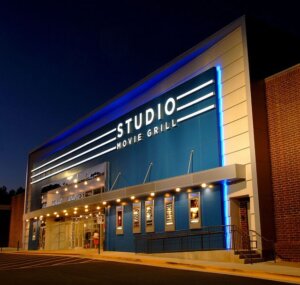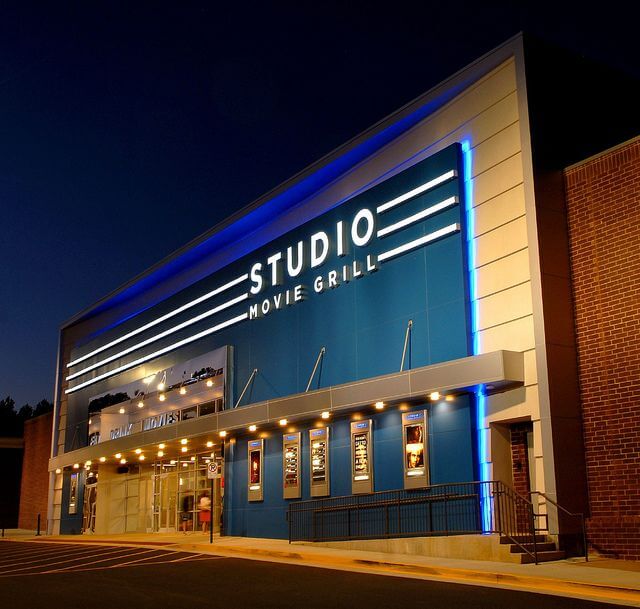Exploring the Iconic Journey of Captain America, Best Movies to Stream Right Now, Brave New World
Introduction to Captain America: Brave New World
Captain America is a name that resonates with people around the world. This iconic superhero has become a symbol of bravery, justice, and the American spirit.
The Marvel Cinematic Universe has played a significant role in the character’s popularity explosion in recent years. Captain America: Brave New World is one of this franchise’s most well-known films.
In this piece, we’ll examine the role Captain America has played in popular culture, give a general synopsis of the film, examine its themes and messages, and examine how it’s affected the Marvel Cinematic Universe.

The Significance of Captain America in Pop Culture
Captain America has stood the test of time and has become an integral part of pop culture. Created by Joe Simon and Jack Kirby in 1941, this patriotic superhero was initially conceived as a symbol of American values during World War II.
His influence, meanwhile, has extended beyond the pages of comic books and has had a noticeable effect on media including cinema and television.
Honor, integrity, and selflessness are characteristics that Captain America exemplifies. He serves as a source of inspiration for others to stand up for what is just and against injustice.
Because of his unrelenting dedication to his ideals, Captain America has served as an inspiration to millions, and his popularity only continues to increase with each new adaptation.
Overview of the Movie – Captain America: Brave New World
“Captain America: Brave New World” is a thrilling addition to the Marvel Cinematic Universe. Directed by the Russo brothers, this movie takes viewers on a rollercoaster ride of action, emotion, and suspense.
The film follows Steve Rogers, played by Chris Evans, as he navigates a world that has drastically changed since his time in World War II.

The story revolves around the conflict between Captain America and a new villain known as the Winter Soldier. As Rogers uncovers a conspiracy that threatens the world, he must confront his past and make difficult choices to protect the values he holds dear.
Plot Summary of Captain America: Brave New World
Steve Rogers is shown settling into modern life at the beginning of the film. He battles to find his place in this new world while being plagued by memories of his past.
When a S.H.I.E.L.D. coworker is attacked, Rogers is drawn into a perilous plot that involves the most powerful people.
As Captain America learns the truth, he understands that Bucky Barnes, a friend he thought was dead, is actually alive and acting as the Winter Soldier.
Rogers is forced to face his past and the decisions he made during World War II as a result of this revelation. Black Widow and Falcon support Captain America as he works to reveal the plot and hold those involved accountable.
An epic showdown between Captain America and
The movie culminates in an epic showdown between Captain America and the Winter Soldier. As the truth is revealed, Rogers must make the ultimate sacrifice to save innocent lives and protect the world from imminent destruction.
Analysis of the Themes and Messages in the Movie
“Captain America: Brave New World” explores several thought-provoking themes and delivers powerful messages throughout its narrative.
One of the central themes is the conflict between personal freedom and the greater good. Captain America is faced with difficult choices, where he must balance his loyalty to his friends and his duty to protect society.
This theme raises questions about the nature of heroism and the sacrifices required to maintain peace and justice.
Another theme explored in the movie is the notion of identity and the impact of the past on the present. Captain America is a man out of time, struggling to reconcile his experiences during World War II with the modern world. His journey serves as a metaphor for the challenges individuals face when adapting to new circumstances and the importance of staying true to oneself.
Furthermore, “Captain America: Brave New World” delves into the nature of power and corruption. The movie highlights the dangers of unchecked authority and the need for accountability.
It serves as a reminder that even those who are perceived as heroes can succumb to the allure of power, and it is essential to question authority to ensure a just society.

The Portrayal of Captain America’s Character Development
One of the strengths of “Captain America: Brave New World” lies in its portrayal of Captain America’s character development.
Throughout the movie, the audience witnesses Rogers’ transformation from a young, idealistic soldier to a battle-hardened hero wrestling with moral dilemmas.
The movie explores the internal struggles and emotional journey of Captain America as he confronts his past and faces the consequences of his actions.
This growth is exemplified through his relationship with Bucky Barnes, where Rogers’ unwavering belief in his friend’s inherent goodness drives his actions.
Chris Evans delivers a compelling performance, capturing the nuances of Captain America’s character. His portrayal showcases the hero’s vulnerability, determination, and unwavering commitment to his principles.
The evolution of Captain America’s character in “Brave New World” is a testament to the depth and complexity of the superhero genre.
The Impact of Captain America: Brave New World on the Marvel Cinematic Universe
“Captain America: Brave New World” has had a profound impact on the Marvel Cinematic Universe.
The movie not only deepens the character of Captain America but also expands the overall narrative of this interconnected universe. The events in this film have far-reaching consequences that reverberate throughout subsequent movies and TV series.
The introduction of the Winter Soldier as a formidable antagonist adds a layer of complexity to the Marvel Cinematic Universe.
This character’s arc continues to be explored in future installments, providing rich storytelling opportunities and further development of the universe’s mythology.
Additionally, the themes explored in “Captain America: Brave New World” resonate throughout the Marvel Cinematic Universe.
The ideas of personal sacrifice, loyalty, and the consequences of power are recurring themes that shape the actions of other superheroes in subsequent movies.
This movie serves as a cornerstone for the franchise, setting the stage for future narratives and character arcs.
Comparisons to Other Captain America Movies
“Captain America: Brave New World” stands out among the other Captain America movies for its darker tone and exploration of complex moral dilemmas.
While the previous films in the franchise focused on Captain America’s origin story and his role in the Avengers, “Brave New World” delves deeper into the character’s psyche and challenges his ideals.
The movie’s gritty and realistic approach sets it apart from the more fantastical elements of the Marvel Cinematic Universe.
It presents Captain America as a flawed hero, grappling with the consequences of his actions and questioning the institutions he once trusted.
Best Movies to Stream Right Now – Captain America: Brave New World
“Captain America: Brave New World” should be at the top of your list if you’re searching for an action-packed, thought-provoking movie to stream right now.
Superhero fans and casual audiences alike will enjoy this movie’s exhilarating action sequences and captivating plot, which together make for an entertaining cinematic experience.
“Captain America: Brave New World” is a must-see for any fan of the genre thanks to its study of deep issues, superb performances, and impact on the larger Marvel Cinematic Universe.
So gather your popcorn, settle back, and take a seat to experience Captain America’s legendary journey.
Who is the main character in Brave New World?
The main character in “Brave New World” is Bernard Marx. Bernard Marx is an Alpha-Plus intellectual, but he is shorter and physically different from the other Alphas due to a mistake during his decanting process.
This physical difference causes him to feel alienated and marginalized in the society that highly values physical perfection and conformity.
Bernard’s inner struggle revolves around his desire for genuine human connection and individuality in a society that discourages such emotions.
He questions the shallow and pleasure-driven culture, leading him to be seen as a misfit and an outsider.
His dissatisfaction with the world around him drives much of the plot and thematic exploration in the novel.
Throughout the story, Bernard becomes involved with John, a man raised outside of the civilized world (the “Savage Reservation”) who represents a stark contrast to the conditioned citizens of the World State.
The interactions between Bernard, John, and the society they inhabit serve as a lens through which the novel examines the price of societal conformity and the value of personal identity.
While Bernard Marx is the central figure in the narrative, other characters, such as Lenina Crowne, John (the Savage), and Mustapha Mond, also play crucial roles in shaping the themes and messages of “Brave New World.”
What is the main purpose of Brave New World?
In order to study the effects of a highly technologically sophisticated society that stresses pleasure, uniformity, and stability at the expense of individuality, freedom, and genuine human connection, “Brave New The main theme of “World” is a dystopian vision of a future civilization.
Aldous Huxley’s book, “Brave New World,” was first published in 1932.
He presents a dystopian society in which the government uses cutting-edge scientific and psychological methods to regulate every facet of people’s lives in this work of speculative fiction.
A highly stratified society is the result of people being genetically created and socialized from birth to fit into particular social classes and roles.
The main idea centers on how this utopian façade dehumanizes people by conditioning them to be satisfied with meaningless pleasures, consumerism, and nonstop distraction.
The society stifles all dissent and independent thought in an effort to end pain and strife by erasing all human aspirations and feelings.
The actual nature of mankind, the worth of freedom, the relevance of uniqueness, and the trade-offs between comfort and true happiness are among the philosophical issues Huxley explores throughout the book.
The cautionary tale “Brave New World” serves as a warning against the risks of giving up human qualities and real experiences in the pursuit of an idealized, regulated society.
Overall, “Brave New World” seeks to provoke readers’ reflection on the value of protecting individuality and the human spirit in the face of a rapidly transforming world by providing a thought-provoking critique of the potential effects of unchecked technological and social advancements.
Who is the main character in Brave New World?
The protagonist of “Brave New World” is Bernard Marx. Although Bernard Marx is an Alpha-Plus thinker, a decanting error caused him to be shorter and physically different from the other Alphas.
He experiences alienation and marginalization as a result of his physical uniqueness in a culture that places a high emphasis on conformity and physical beauty.
In a culture that devalues such feelings, Bernard struggles internally with his quest for authentic human connection and individuality.
He challenges the superficial and pleasure-centered culture, which makes him appear odd and beyond the norm.
The plot and subject development in the book are heavily influenced by his disillusionment with the world.
Throughout the course of the narrative, Bernard develops a relationship with John, a guy who was raised in an area known as the “Savage Reservation” and who stands in sharp contrast to the World State’s conditioned residents.
The story addresses the cost of social conformity and the value of individual identity via the relationships between Bernard, John, and the society they live in.
Despite the fact that Bernard Marx serves as the story’s focal point, other characters including Lenina Crowne, John (the Savage), and Mustapha Mond all have a significant impact on the ideas and messages of “Brave New World.”
Is Brave New World a love story?
The main focus of “Brave New World” is not a traditional love story.
Although there are aspects of romance and relationships in the book, they are not the main subject of the story.
The dystopian society, the impacts of technological and social control, and the dehumanizing results of pursuing happiness and stability at the expense of individuality and freedom are the novel’s main themes.
It examines the potential perils of a society where people are conditioned to value pleasure and conformity over deeper personal ties, where human relationships are superficial, where emotions are repressed, and where.
Although there is some emotional chemistry between Bernard Marx and Lenina Crowne, the connection is less of a major love tale and more of a means of exploring the novel’s themes.
Given that Lenina is socially awkward and Bernard is raised to fit in, their connection is complicated and full of inconsistencies.
Their encounters bring to light the difficulties of developing sincere relationships in a culture that promotes rapid pleasure and discourages emotional depth.
Lenina’s connection with John (the Savage), a character who likewise feels love and adoration for her, further examines the conflict between primordial instincts of love and the surface standards of the World State.
“Brave New World” is essentially a cautionary dystopian novel that criticizes the possible hazards of losing individuality and real human ties in the goal of an idealized, controlled society, even as themes of love and relationships are weaved into the story.
Best Movies to Stream Right Now The Enduring Legacy of Captain America, Brave New World
“Captain America: Brave New World” has left an indelible mark on the superhero genre and the Marvel Cinematic Universe.
It showcases the significance of Captain America in pop culture and highlights the enduring themes and messages that resonate with audiences around the world.
This movie exemplifies the power of storytelling and the impact it can have on shaping our society.
Through its exploration of personal sacrifice, the consequences of power, and the struggle to maintain one’s identity, “Captain America: Brave New World” invites viewers to reflect on their own lives and the choices they make.
Aldous Huxley’s “Brave New World” is a thought-provoking and stern warning on what happens when you give up independence and uniqueness for communal harmony and uniformity.
The dystopian future world that the book describes has seemingly been brought about through genetic engineering and technology developments is one in which people live in harmony.
However, a terrible reality of dehumanization, loss of genuine emotions, and repression of uniqueness exists behind the surface.
Huxley’s depiction of a society where luxury and pleasure are prioritized raises important issues regarding the true price of giving up human autonomy.
The book emphasizes the perils of an instant gratification-based society where meaningful human ties are supplanted by mindless diversions and fleeting encounters.
The author examines the significant influence that information and the preservation of history have in forming a society’s values and ethics during the course of the novel.
In order to preserve one’s sense of self and humanity, he highlights the value of literature, art, and ancient knowledge.
Additionally, “Brave New World” emphasizes the value of uniqueness and the pursuit of the truth, especially in the face of difficulty.
People like John the Savage serve as shining examples of the importance of preserving one’s individuality and defying pressure to fit in.
Huxley’s masterpiece ultimately asks us to consider how to strike a balance between progress and humanity.
It issues a warning against the perils of uncritically adopting technology breakthroughs without taking into account their ethical ramifications.
The disturbing depiction of a world devoid of passion and genuine emotion in the book serves as a sobering warning that happiness should not be pursued at the expense of individuality and the core of what makes us human.
As we continue to debate issues relating to technology, consumerism, and the place of individuality in society, “Brave New World” is still relevant in our own time.
Even in the face of what seem to be utopian promises, it implores us to defend our moral principles, critical thinking, and natural human spirit with vigilance.
“Brave New World” serves as a sobering reminder of the ongoing significance of upholding our humanity and welcoming variety in all of its forms as we traverse the challenges of the future.
